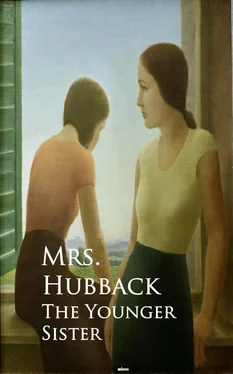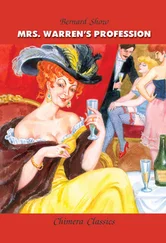Here was food for wonder to Elizabeth; after all then the Osbornes though noble were not perfect; and the Howards, with their nice house, comfortable income, and high connections had, like other people, their own peculiar grievances, and cherished those hopes of improving their lot, by some anticipated change, which form the principal charm of life to half the world.
"I owe much to Lady Osborne for kindness both of deed and of intention," said Mr. Howard seriously; "and I should be sorry either by word or act, to fail in the respect which is her due. She always means kindly at least."
"It is quite right of you, Edward, to be careful how you express your opinion, but neither gallantry nor gratitude have the same claim on me. She always means kindly to herself, I dare say, and thinks she means so to us—but she is no judge of our comfort, and fancies because our rank is different, we have a different set of feelings likewise—"
"For shame, Clara," interrupted her brother, "you forget what you are saying, and the best thing for you is, that we should forget it too."
"No indeed," replied she smiling; "must she not suppose you endowed with an extraordinary indifference to cold, and a super-human energy of frame to be pleased at encountering such a storm as this? hark to the wind!"
"Well, I am convinced, that were we removed from the vicinity of the Castle, as you so much desire, Clara, we should suffer as much inconvenience from the loss of many comforts which they afford us now; and you would admit then, that the good and evil were more equally balanced than you are at present disposed to allow."
"We might not have quite so much game, Edward; Miss Osborne would not give me flowers, and we should not go to assemblies in their coach; but on the other hand, I should not be so plagued by our best maid marrying their groom, as Lucy is going to do next month, because the Osborne Arms will then be vacant; nor would the laundress tell me when I complained of her clear-starching, that she had always helped in my lady's laundry, and the housekeeper had been perfectly satisfied with her."
"But pray tell me," said Emma, "is there any reason for her ladyship's curiously illegible hand, has she lost any of her fingers, or did she never learn to write?"
"I assure you she would be surprised at your not admiring her writing," said Mrs. Willis; "she piques herself on its peculiar and aristocratic beauty."
"I am sure," said Elizabeth, "I have often been punished for writing which was much better than that; the writing master at school would have groaned at such a prodigious waste of paper and ink."
"Nevertheless, it thoroughly attains the object at which she aims, to be unique," said Mr. Howard, "and I am sure she would be much surprised at hearing it was illegible; but she thinks a fair, flowing hand, in an Italian character, much more a round, distinct, and clear one, only fit for tradesmen's accounts or clergymen's sermons."
"She has the same taste in everything," said his sister; "that frightful little dog she is so fond of petting, and half the ornaments in the drawing-room have no value but in their singularity."
"And do her family inherit her tastes?" enquired Emma, "does her son, for instance, prefer the wonderful to the beautiful?"
Mr. Howard gave Emma an enquiring glance, which seemed intended to question the motive of her curiosity; then answered rather gravely, that Lord Osborne's tastes and opinions were as yet unformed.
"But he is not insensible to the power of some kind of beauty," cried Elizabeth, looking archly at her sister; "from what I have lately heard of him, I am certain he is not."
Why the subject of Lord Osborne's tastes should be disagreeable to Mr. Howard, Emma could not precisely comprehend, though she pondered long on the matter, but this short discussion was evidently followed by a certain coldness and restraint in his manner of addressing her, which puzzled and rather vexed her. It was not, however, shaken off during the rest of the evening, and the unpleasant sensation it produced, was only mitigated by his being persuaded to read aloud to them, and in this manner the rest of the evening was spent.
The weather the next morning did not offer any prospect of a release to the young ladies, and to say the truth they evidently bore the involuntary absence from home without suffering very acutely, if either their air of complacency or their lively conversation might be considered indicative of their feelings. Breakfast passed pleasantly away, and the ladies were quietly sitting together afterwards, when the door opened and Lord Osborne's head appeared.
"May I come in?" said he, standing with the door in his hand. "You look very comfortable."
"You will not disturb us, my lord," said Mrs. Willis gently but good-humouredly, "provided you have no dog with you."
He advanced and paid his compliments to the ladies, then turned to the fire.
"That's nice," said he; "you can't think how pleasant it is after the cold air;" then seating himself and holding out his feet to dry before the fire, he said to Emma, "I heard you were snowed up here last night."
"Did you, my lord," said she very coolly.
"Yes; my mother
would
know who it was with Howard, and so I learnt, and I am to give you my sister's compliments, or love or something of the sort, and as soon as the road is swept she will come and see you."
Emma was rather embarrassed at this declaration; she did not wish for Miss Osborne's notice, and felt uncomfortably averse to her patronage; yet the declaration seemed to excite so little surprise or emotion of any kind on the part of her new friend that she began to think it might be a more common-place matter than she had anticipated. The feelings of the sisters were not at all alike, though the result was the same in each; they both shrank from any intercourse with Miss Osborne; Elizabeth because she feared their inferior style of living would shock and disgust her, or perhaps excite her ridicule; Emma because she apprehended the superiority of her birth and fortune would lead the peer's daughter to expect a degree of complaisance and submission which Emma herself would only pay to superior talents or virtue; but when she saw the quiet ease with which Lord Osborne was received, and the indifference with which the announcement of his sister's intentions was listened to, she became better reconciled to her lot, and prepared to go through her share of the introduction with calmness.
After all, Miss Osborne, though a baron's daughter and living in a castle, might have the tastes which are to be found amongst the dwellers in parsonages—though she travelled in a coach and four, she might love variety and novelty as much as the driver of the humblest one-horse chaise, and the prospect of forming a new acquaintance might have many charms for her on a snowy day when her time would probably hang heavy on her hands.
"It's not such bad walking either as you would think," said Lord Osborne to nobody, and in answer to nothing; "and the walk down here is screened from the wind; but you would be surprised to see how the snow has drifted in places: it will be impossible for you to get through the lanes to-day Miss Watson."
"We do not intend that they should attempt it," said their hostess, "until we have ascertained that the roads are perfectly practicable, it would be inhuman to turn them out."
A short silence ensued. Lord Osborne sat by the fire looking at Emma, who proceeded steadily with her work; presently Mrs. Willis commenced, or rather resumed a conversation with Elizabeth, for the entrance of his lordship had interrupted it, on the the best methods of rearing domestic poultry.
Gradually as Miss Watson became hardened to the consciousness of being listened to by Lord Osborne, her faculties returned; and though at his first entrance she could not have told how young chickens should be fed, before the expiration of half an hour she was equal to imparting to her companion the deepest mysteries of the poultry yard.
Читать дальше












